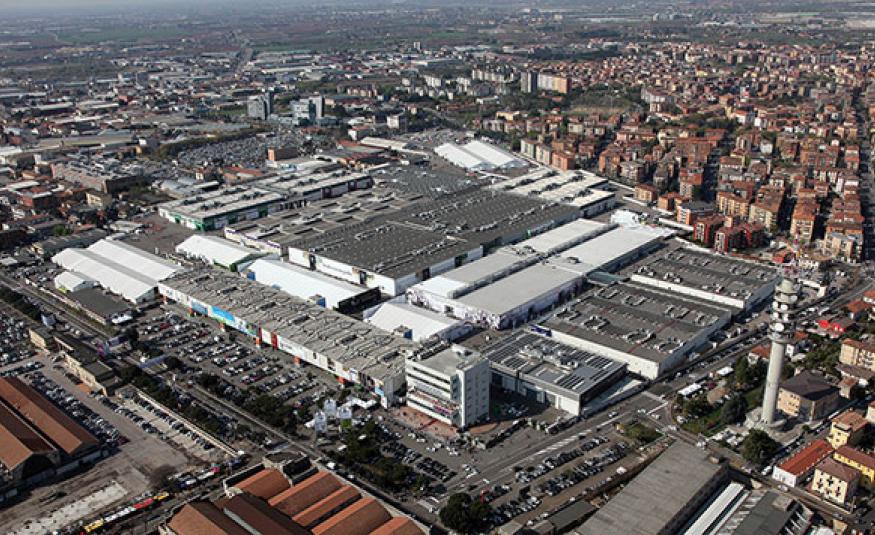EW takes a look at the exhibition industry in Verona, as Italy considers major national investment and support for SMEs. – Words by Sarah-Claire Picton
In February this year, the General Assembly of Confindustria (Confederation of Italian Industries) discussed in Verona how to transform the Italian economy within upcoming five year plans. The idea is to create at least 1.8m jobs; grow real GDP by 12 per cent; fundamentally as a result of strengthening SMEs, empowering them to expand and become more competitive.
President of Confindustria Vincenzo Boccia said that to fulfil this mission, Confindustria would need €250bn (US$291.6) of resources. “Small is no longer beautiful to us. We need to move on and expand because global markets are niche markets and niche markets are markets for Italians and Europeans.”
Global exhibitions are one of the most efficient and proven methods of championing the cause of SMEs; which typically comprise the bulk of exhibitors.
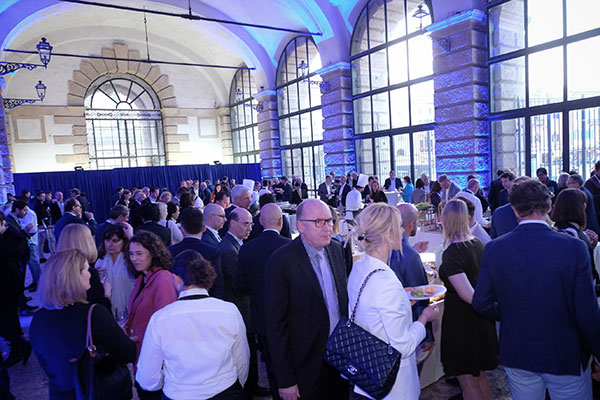
In May this year, UFI met in Verona to discuss progress and evolution in our industry. Steeped in history andShakespearean romance, Verona, while nuanced in Old World charm, is a city propelling itself toward change.
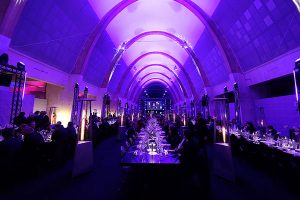 The reasons an organiser would exhibit in this global wine capital and tourist destination are linked to its strong economy. Verona is the fourth richest city in Italy, with a low unemployment rate.
The reasons an organiser would exhibit in this global wine capital and tourist destination are linked to its strong economy. Verona is the fourth richest city in Italy, with a low unemployment rate.
The city exports goods and services worth more than €10.4bn, industries including mechanics, food, wine, tourism, fashion, building materials. Over 90 international holdings are based here.
Economic position aside, geographically Verona lies at a major route crossing: north to south from central Europe to Rome and east to west from Eastern Europe to France and Spain. The choice of pre- and post-event activity is outstanding, given Verona’s touristic heritage.
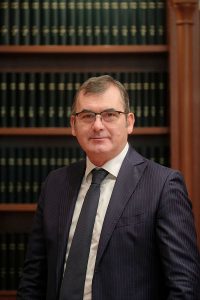 Maurizio Danese (pictured left), president of Veronafiere, the largest international exhibition venue in Verona, says the story of Verona began in 1898 with city council exhibition activities associated with agriculture and horses “The Ente Autonomo per le Fiere di Verona was founded in 1930 and became Veronafiere in 2017, taking the legal status of a joint-stock equity company: this new status helps it to better perform in the market.” Today the company owns almost all the events in [the town’s] calendar, generating more than 85 per cent of turnover.”
Maurizio Danese (pictured left), president of Veronafiere, the largest international exhibition venue in Verona, says the story of Verona began in 1898 with city council exhibition activities associated with agriculture and horses “The Ente Autonomo per le Fiere di Verona was founded in 1930 and became Veronafiere in 2017, taking the legal status of a joint-stock equity company: this new status helps it to better perform in the market.” Today the company owns almost all the events in [the town’s] calendar, generating more than 85 per cent of turnover.”
Veronafiere’s globally recognised events include Vinitaly for the wine business, Marmomac for the natural stone industry, Fieragricola for agriculture and Samoter for construction equipment.
“Industries in this area range from mechanics to food, wine, tourism, fashion and building materials. Wine exports alone amounted to €923m in 2016, 8.8 per cent of Verona exports and 12.2 per cent of national wine exports.”
Danese points out that another asset of the Veronese economy is tourism with 16.5m tourists, adding to the income generated by Veronafiere’s major events. “Veronafiere posted consolidated turnover of €85m at group level in 2017 with a gross operating margin of 15 per cent. This result ranks it among the 40 most important exhibition centres in the world, standing 12th in Europe for exhibition space and 13th for visitor numbers,” says Danese.
“The main brands Vinitaly and Marmomac take their strength from the strategic hubs in its area,” he says. However, he adds that Veronafiere must think bigger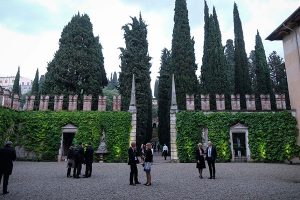 and go beyond Verona’s walls.
and go beyond Verona’s walls.
When thinking big, aim to think new, Danese explains when discussing new infrastructure. “The 2016-2020 business plan has a chapter entirely dedicated to the modernisation of the fairground, which settles in its premises from 1948 in the old industrial area of Verona.”
Today, Veronafiere is seeking goals overseas, in a move to internationalise its business.
The 2018 UFI European Seminar was one of the most influential recent events - showcasing Veronafiere to the industry. In reflecting on being the host of the conference, Danese again gives a nod to history and its role in shaping our present.
“In 1998 Veronafiere was celebrating its Centenary and hosted the UFI Annual Congress. It is a great acknowledgement to be the seat of the European Conference, again on a significant date for the company: 120 years since its establishment.”
Economically and geographically, Verona’s strong position makes it a kinetic force in the European and global exhibitions industry.
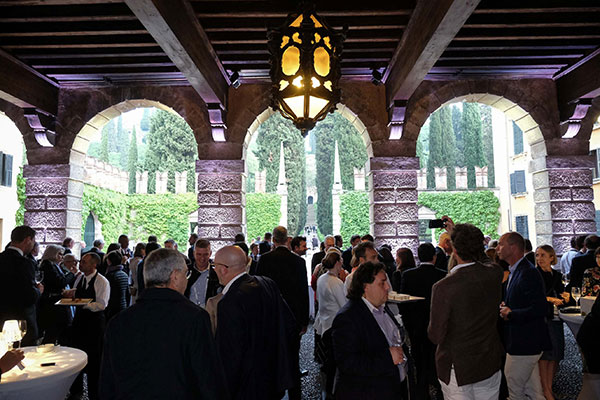
Celebrating 120 years
The UFI European Conference in Verona, 2-4 May, recorded double-digit growth for the second year in a row, bringing together over 220 participants from 35 different countries and regions.
Speakers and delegates debated over the key changes that must occur to create future-proof exhibitions that are in line with new patterns of consumer behaviour.
“A key takeaway following these sessions is that new technologies, especially around artificial intelligence, will allow exhibition organisers to address their audience much more precisely. But also, at the same time, we’ve seen a very open discussion about those areas of our business where we are clearly lagging behind what customers experience elsewhere, and what we need to do about that,” said Kai Hattendorf, UFI managing director.
“As an Italian, it is wonderful that we could bring this event to Verona – to Italy – during my presidency,” said UFI president Corrado Peraboni.
Read the feature in Exhibition World (Issue 3 | 2018), online here: http://joom.ag/hgwY/p42

